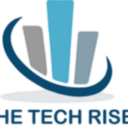Marketing Strategies:
In today’s digital era, social media has become integral to our daily lives. From connecting with friends and family to sharing moments and discovering new trends, social media platforms have revolutionized how we interact with the world. Beyond personal use, businesses have recognized the immense potential of social media in shaping modern marketing strategies. This article explores the role of social media in contemporary marketing, highlighting how it enables brands to build connections, engage with audiences, and amplify their presence in the digital landscape.
Enhancing Brand Visibility:
Social media platforms provide businesses with a global stage to showcase their products and services with billions of active users, and platforms like Facebook, Instagram, Twitter, and LinkedIn offer unparalleled reach. Through strategic content creation, businesses can create a strong brand presence, attract followers, and increase visibility in the online marketplace. From creative visuals to compelling storytelling, social media allows brands to differentiate themselves and stand out amidst the competition.
Targeted Advertising and Audience Segmentation:
One of the significant advantages of social media marketing is the ability to target specific demographics and reach the right audience. Platforms offer robust advertising tools that enable businesses to tailor their messages based on age, location, interests, and behaviors. This precision ensures that marketing efforts are directed toward those most likely to be interested in the brand, resulting in higher conversion rates and a better return on investment.
Building Customer Relationships:

Social media allows brands to forge genuine connections with their audience. Businesses can build trust, loyalty, and a sense of community by engaging in conversations, responding to comments, and addressing customer concerns. Social media also offers a direct line of communication, allowing customers to provide feedback, share experiences, and become brand advocates. This level of interaction fosters long-term customer relationships and enhances brand reputation.
Influencer Marketing:
The rise of social media has given birth to a new breed of influencers who have a significant impact and sway over their followers’ purchasing decisions. Collaborating with influencers who align with a brand’s values and target audience can be a powerful marketing strategy. Influencers can promote products or services, share authentic experiences, and generate buzz around a brand. Their recommendations and endorsements carry weight, leading to increased brand awareness and customer engagement.
Real-Time Analytics and Insights:
Social media platforms offer robust analytics and tracking tools that provide valuable insights into the effectiveness of marketing campaigns. From measuring reach and engagement to tracking website traffic and conversions, these analytics allow businesses to make data-driven decisions, optimize their strategies, and achieve better results. The ability to monitor trends, gather customer feedback, and stay updated on competitors also helps brands remain agile and adapt to changing market dynamics.
Social Listening and Market Research:
Social media provides a wealth of data and insights to help businesses better understand their target audience. By monitoring conversations, trends, and discussions related to their industry, brands can gain valuable market research and consumer insights. This information can inform marketing strategies, product development, and customer service improvements, ensuring businesses stay aligned with customer needs and preferences.
Content Distribution and Viral Marketing:

Social media acts as a powerful content distribution platform, allowing businesses to instantly share their content with a broad audience. Engaging and shareable content has the potential to go viral, spreading organically across social networks. Viral marketing campaigns can amplify brand visibility, generate buzz, and attract new followers. By creating compelling and share-worthy content, businesses can leverage social media’s viral nature to reach a broader audience and increase brand awareness.
Customer Support and Relationship Management:
Social media has become an essential channel for customer support and relationship management. Customers often turn to social media to seek assistance or express their concerns publicly. Brands that are responsive and proactive in addressing customer queries or issues on social media can demonstrate excellent customer service and build a positive brand image. Timely and personalized responses can turn dissatisfied customers into loyal advocates, showcasing a brand’s commitment to customer satisfaction.
User-Generated Content and Social Proof:
Social media encourages user-generated content (UGC), where customers create and share content related to a brand’s products or services. UGC acts as social proof, providing authentic recommendations and endorsements from genuine customers. By actively encouraging and leveraging UGC, brands can showcase social proof, build trust, and attract new customers. UGC campaigns, such as contests or hashtags, can foster engagement and virality, further expanding a brand’s reach.
Conclusion: In the ever-evolving landscape of modern marketing, social media has emerged as a game-changer. From enhancing brand visibility and reaching targeted audiences to building genuine customer relationships and harnessing the power of influencers, social media offers many opportunities for businesses to thrive. By embracing social media as a core component of their marketing strategies, brands can harness the power of digital connectivity, amplify their presence, and drive business growth in today’s interconnected world.










